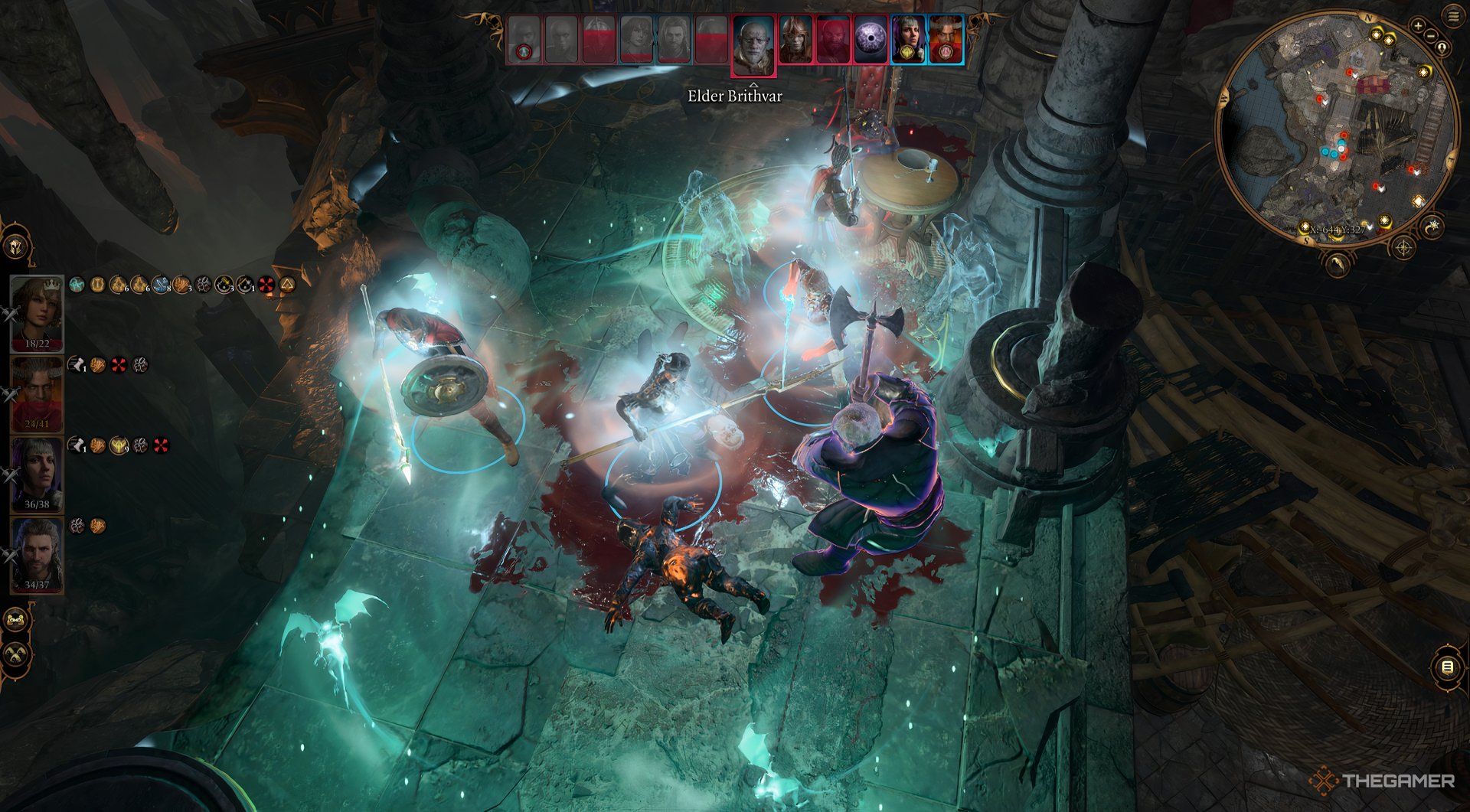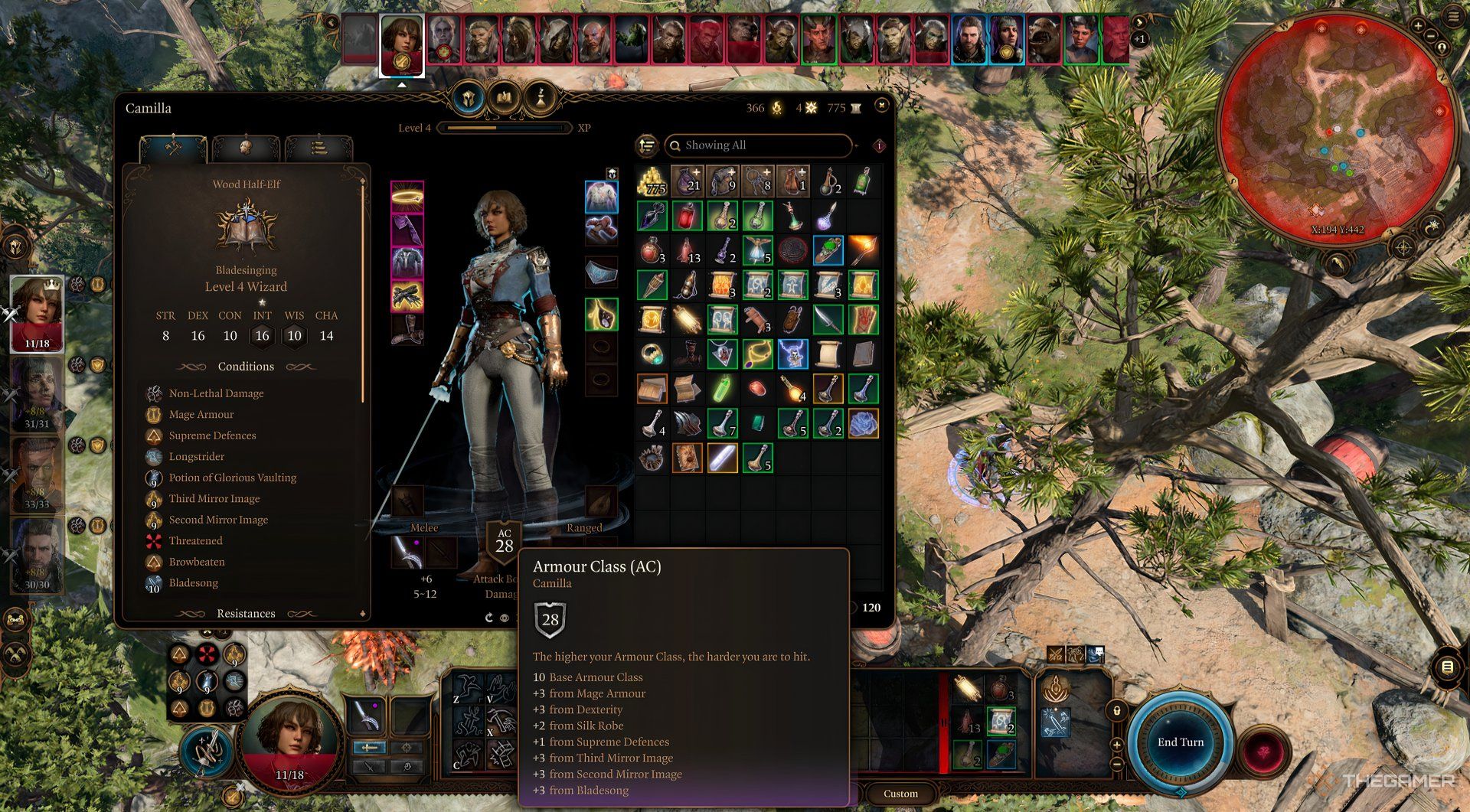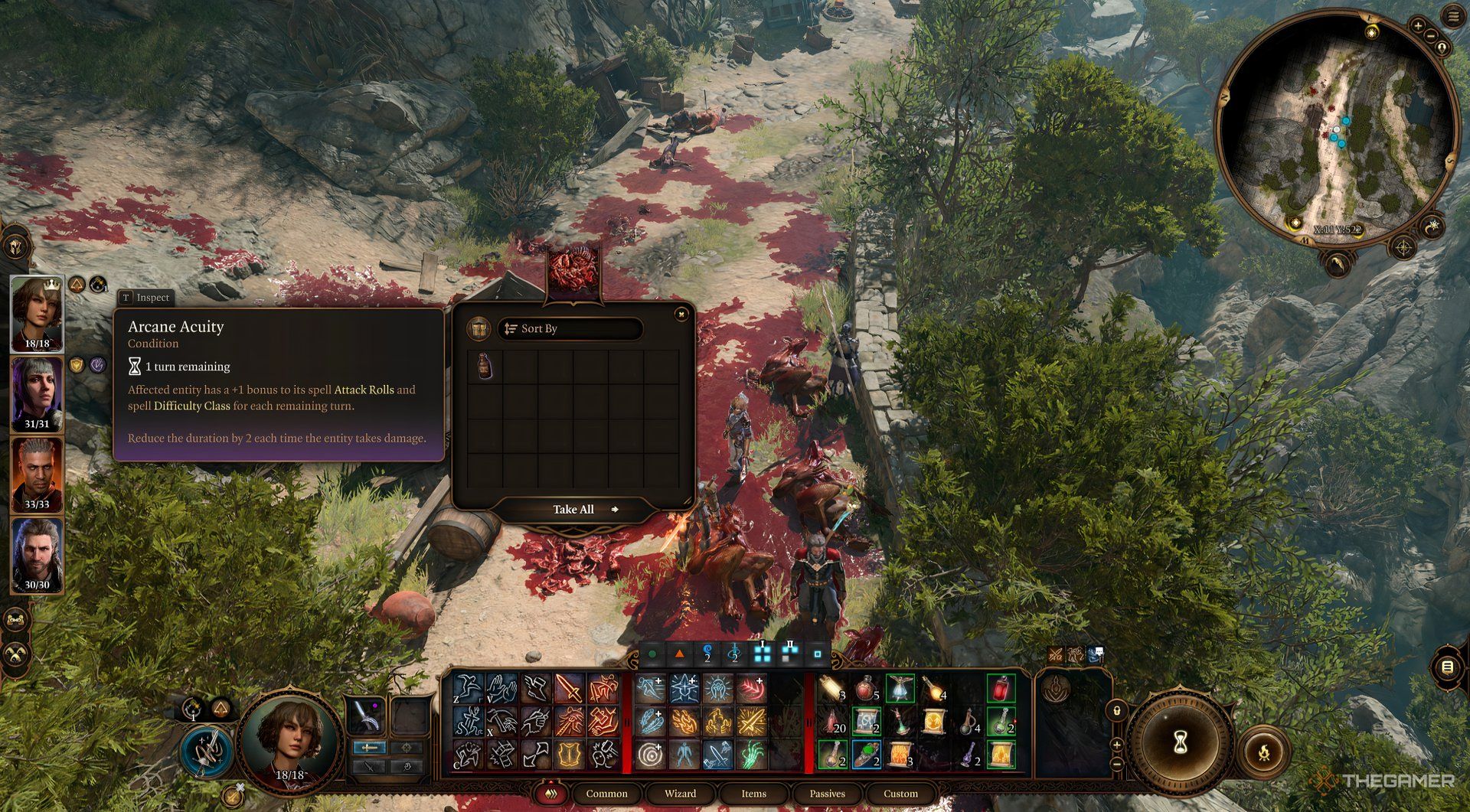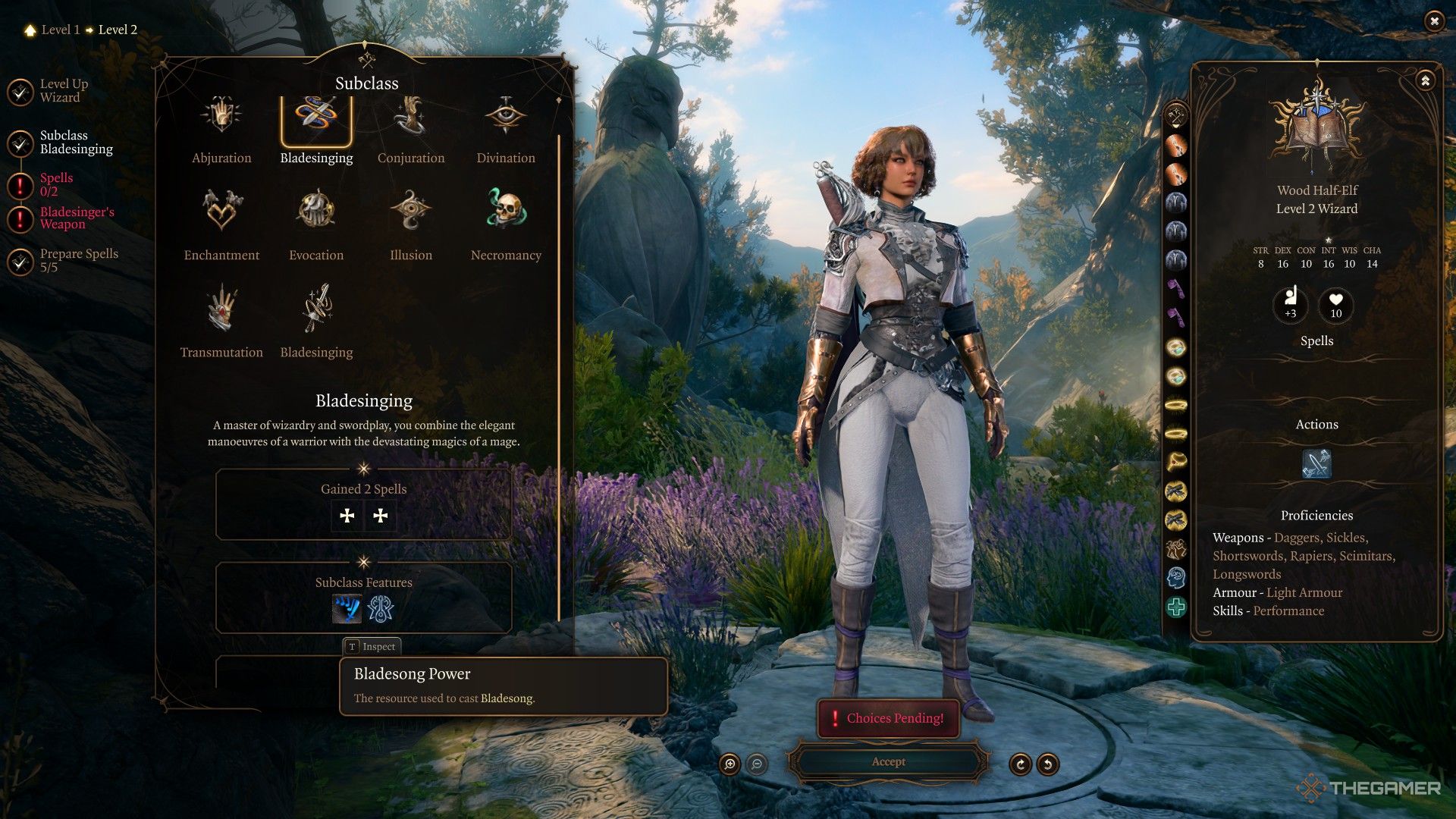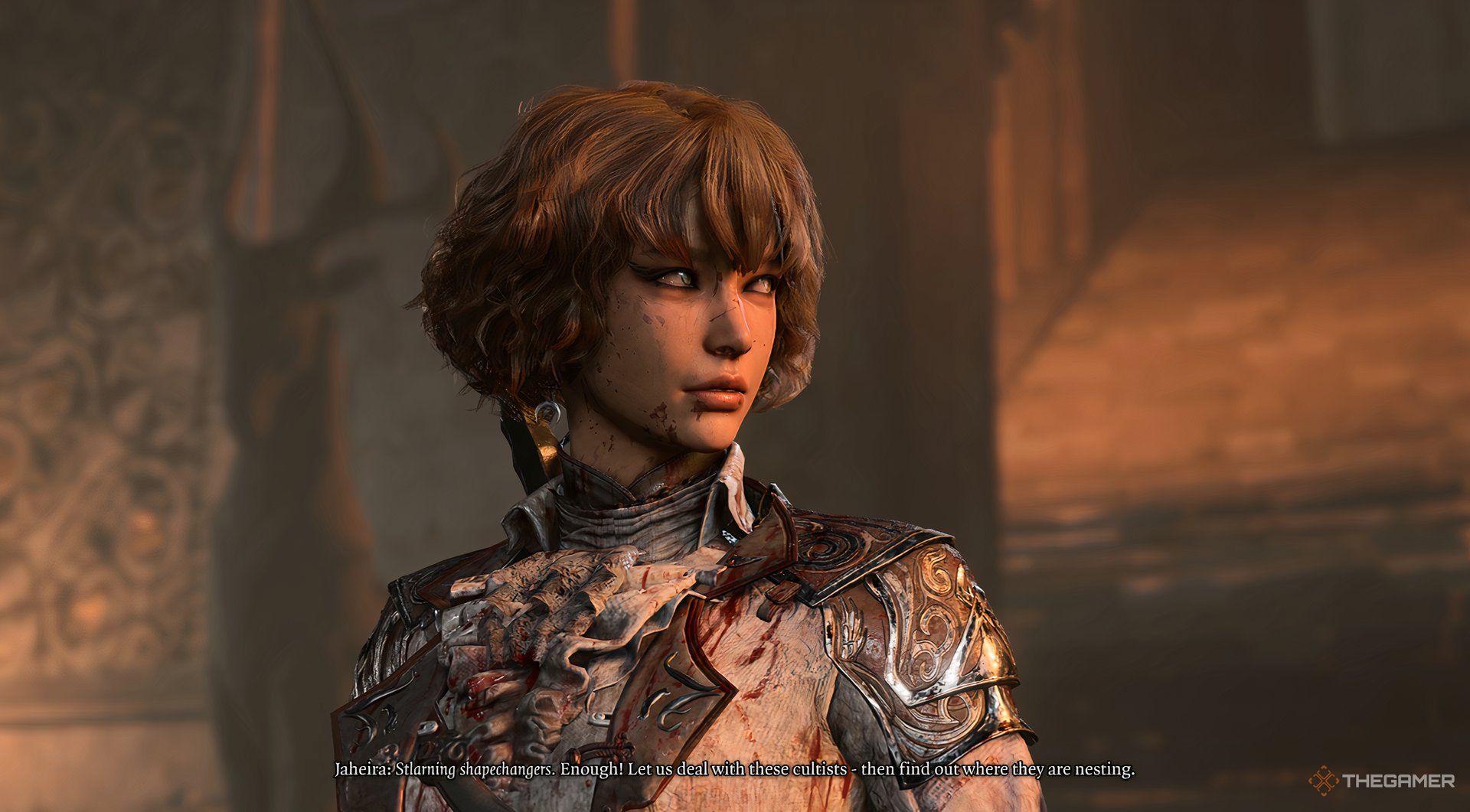With Baldur’s Gate 3‘s final big patch, the Bladesinger makes their proud and overdue debut into the lineup of the strongest subclasses available in the vanilla. Bragging a huge field of versatility, there are few other subclasses that can go toe-to-toe with the Bladesinger’s malleable style.
Related
Baldur’s Gate 3: Best Life Domain Cleric Build
Unleash your full healing potential.
While there are many options to build a Bladesinger, the strongest builds will lean into the Bladesinger’s special feat: Bladesong. Without requiring an action or bonus action, the Bladesinger can become an unhittable, damage-dealing striker that puts other frontline units to shame.
Best Bladesinging Wizard Races And Backgrounds
Mobility and resistances are important for a class that is going to be spending a lot of time running as a group’s striker (that is, acting as a frontline attacker).
Functionally, the best races for the Bladesinger are:
- Half-Orcs – Extra critical damage.
- Wood-Elves (or Wood Half-Elf) – Fey Ancestry and Extra Movement.
-
Githyanki – Free
 Misty Step
Misty Step.
You can also elect to take a Tiefling or Dragonborn for the free resist against one damage type.
For Backgrounds, you’ll want Backgrounds featuring an Intelligence skill:
- Acolyte (Insight and Religion)
- Guild Artisan (Insight and Persuasion)
- Noble (History and Persuasion)
- Sage (Arcana and History)
Choosing the Dark Urge is not necessarily recommended for this build. You will receive certain bonuses that are helpful to any build, but Bladesinger does not benefit from a Dark Urge more than any other.
Multiclassing As A Bladesinging Wizard
Multiclassing a Bladesinger can really hurt its effectiveness. It comes at the cost of fewer Bladesong charges and losing access to higher-level spells.
It is not generally recommended to multiclass the Bladesinger, but there is one potential class destined for greatness:
One level dip into Hexblade Warlock
By dipping a single level into Hexblade Warlock, you’ll be able to use your Charisma modifier instead of Strength or Dexterity with your melee weapon. Additionally, your hits will deal extra damage, and you may heal.
This multiclass will render using the Infernal Rapier unnecessary. This will give you the ability to instead use a Longsword, like Phalar Aluve, for a different but equally devastating build. This, however, will mean that you will want a different Ability Score spread than the one we have provided below.
Best Bladesinging Wizard Spells
|
Spell Level |
Best Spell Choices |
|---|---|
|
Cantrips |
Booming Blade, |
|
One |
, , Shield |
|
Two |
, , |
|
Three |
, , |
|
Four |
, , |
|
Five |
None |
|
Six |
, , |
Although the Bladesinging Wizard can have up to Level Six spells, it really only needs spells up to the third level. You’ll find yourself rarely using higher-level spells and more often enjoying the extra spell slots.
Your cantrip selection should include ![]() Shocking Grasp
Shocking Grasp
for the ability to run away and cancel reaction attacks against you, while Booming Blade will give you some critical extra damage.
Leveling up, you’ll want Mage Armor for extra protection (if you’re playing a Dexterity build) and Shield for emergencies.
Damage spells at the first level are not necessarily needed. ![]() Magic Missile
Magic Missile
will help with the Auntie Ethel fight, and ![]() Chromatic Orb
Chromatic Orb
will have its uses destroying pesky sentries, but you should save any other damaging spells for being learned via gold and spell scrolls.
As you continue into the second spells, you’ll have two main priorities:
- Armor Class (AC)
- Movement
The second is easily taken care of with  Misty Step
Misty Step
.
While you do have access to Blur
– and it can certainly also be useful – we found more success with ![]() Mirror Image
Mirror Image
as it does not require Concentration to maintain, leaving you free for other Concentration spells.
Finally, the bread-and-butter of the build is evened out with your third-level spells.
![]() Haste
Haste
will give you additional AC while allowing you to bring the hurt as a striker. As this build is vulnerable to spell attacks that use DC instead of To Hit mechanics, ![]() Counterspell
Counterspell
should be prepared as well.
Finally, ![]() Glyph of Warding
Glyph of Warding
will allow you to play the field. We found a good strategy was to use the Sleep option, narrowing down threats that might overwhelm the Bladesinger.
We also found ourselves using Slow very often in this build. This plays well in a team setting with multiple high-HP enemies, cutting their movement speed and options drastically.
The late wizard levels matter far less. Staying a wizard at higher levels is done solely for the benefits of the subclass’s features and not necessarily spells.
You will have a lot of versatility, however, and the following spells will cover bases where the Bladesinger might face challenges:
-
Ice Storm
– Covers weakness to swarming swathes of enemies and area control
-
 Confusion
Confusion
– Creates openings for large numbers of enemies for both self and allies without potential area obstacles
-
 Fire Shield
Fire Shield
– Punishes the rare enemy that might break through your AC
-
 Wall of Ice
Wall of Ice
– Zone enemies you don’t want in your face yet
-
 Otto’s Irresistible Dance
Otto’s Irresistible Dance
– Create Prone opening for Advantage on melee attacks
Best Bladesinging Wizard Ability Scores And Feats
|
Ability |
Base Score |
Goal Scores |
Method Achieved |
|---|---|---|---|
|
Strength |
8 |
8 |
— |
|
Dexterity |
16 |
18 |
Ability Score Improvement +2 |
|
Constitution |
14 |
23 |
Amulet of Greater Health |
|
Intelligence |
16 |
20 |
Ability Score Improvement +2, +1 Mirror of Loss, +1 Auntie Ethel |
|
Wisdom |
10 |
10 |
— |
|
Charisma |
10 |
11 |
+1 Mirror of Loss |
This build primarily sets its sights on increasing Intelligence in preparation to use as a modifier for the ![]() Infernal Rapier
Infernal Rapier
, casting your Wizard spells, and increasing your bonuses from Bladesong.
Dexterity will give this build an amazing start with weapons beforehand while increasing AC. Constitution is a must for maintaining important spells later on, such as ![]() Haste
Haste
.
If you’re a character who will be spending a lot of time talking, you can swap out Constitution for Charisma as needed. It is a risky endeavour, but it is a manageable one with this build’s high AC.
As you begin your journey as a Bladesinging Wizard, you’ll be asked which weapon you wish to be proficient in.
For the purposes of this specific build, you’ll want to choose the Rapier.
Your first upgrade at Level 4 should be given to the feat: Defensive Duelist. This will increase your survivability without having to use spell slots on your Shield spell.
You’ll have another upgrade at Level 8 and 12, and these should be Ability Score Upgrades for Intelligence first and then Dexterity.
You can switch Defensive Duelist or your Dexterity upgrade for the Alert Feat if you find yourself in higher-levels of difficulty too far down in the turn order too frequently.
Best Bladesinging Wizard Equipment
The Bladesinger’s primary focus is on obtaining and using the ![]() Infernal Rapier
Infernal Rapier
. This will allow the Intelligence score to be used with your weapon.
After reaching deep into Act Three, you may wish to switch out your Infernal Rapier for the Duelist’s Prerogative. This, however, is not necessary for the build.
Around your weapon, you’ll want two things:
- Items that increase your Spell Hit and Spell Save DC.
- Items that give you Arcane Synergy.
Additionally, the ![]() Amulet of Greater Health
Amulet of Greater Health
is highly useful in that it will ensure that you’ll both fix the squishiness of your wizard while ensuring your concentration spells are not prematurely ended.
If you enjoy using mods, now officially supported, with your gameplay, and wish to keep this build but want a different weapon, we suggest using the “Phalar Aluve as a Rapier” mod. We had tremendous fun with it in this build, and it felt very thematic.
How To Use A Bladesinging Wizard – Battle Tips, Strategy, And Analysis
The endgame of the Bladesinging Wizard build should be similar to:
|
Ability Scores |
|||||
|---|---|---|---|---|---|
|
Strength |
Dexterity |
Constitution |
Intelligence |
Wisdom |
Charisma |
|
8 (-1) |
18 (+4) |
23 (+6) |
20 (+5) |
10 (0) |
10 (0) |
|
Health |
122 |
||||
|
AC |
16-32 |
||||
|
Spell Save DC |
22 |
||||
|
Top 5 Prepared Spells |
, Shield, , , |
||||
|
Feats |
Defensive Duelist, Fleet of Foot, Extra Attack, Bladesong, Song of Defence, Training in War and Song, Fey Ancestry |
||||
As a striking magic unit, the Bladesinger will be spending a lot of time in melee with other units. However, until the third act, the Bladesinger suffers from a slightly squishy stature.
Without ![]() Counterspell
Counterspell
, it can be weak to the effects of mental spells like ![]() Fear
Fear
or ![]() Confusion
Confusion
, making it a must-have in the midgame.
A successful Bladesinger will come prepared to any fight with ![]() Mage Armour
Mage Armour
already equipped.
During your first round of combat, you’ll want to prepare your defenses:
-
If you’re a high enough level, use
 Haste
Hastefirst.
-
Follow up with
 Mirror Image
Mirror Image.
- Turn on your Bladesong and move into your desired location.
With all your buffs on, you’re looking at as high as 32 AC. There are very few units in the game that can strike you with such a number, so it’s generally safe to move your wizard into frontline combat at this point. You should ideally target ranged units that would have disadvantage against hitting you in melee range.
As you concentrate on Haste (or perhaps another Concentration spell, should the need arise), you’ll be able to deal additional damage with your weapon attacks.
However, your first attack should always be a cantrip spell – either a ![]() Ray of Frost
Ray of Frost
or  Bone Chill
Bone Chill
while approaching or a ![]() Shocking Grasp
Shocking Grasp
in melee. This will activate your Arcane Synergy.
Throughout combat, every third round should have a cantrip spell casted.
Although Song of Defence will help your survival in later levels, you’ll likely need to retreat from certain situations in the early and mid-game. In such an event, use Shocking Grasp to retreat.
Otherwise, you can use Bladesong Climax to heal yourself as needed (ending your Bladesong).
For maximum effect, you can detonate Bladesong near the end of combat or on your final turn of Bladesong to deal a large amount of damage as a Bonus Action.
As necessary, you can swap between the frontlines and back of your party. The field will dictate where your Bladesinger would be most suited.
With so many buffing spells, you can even have your Bladesinger relinquish control of the frontlines to another character that might be better for the situation.
No matter where you are or who you face, your Bladesinger’s versatility will mean you’ll always have a path around any obstacle.
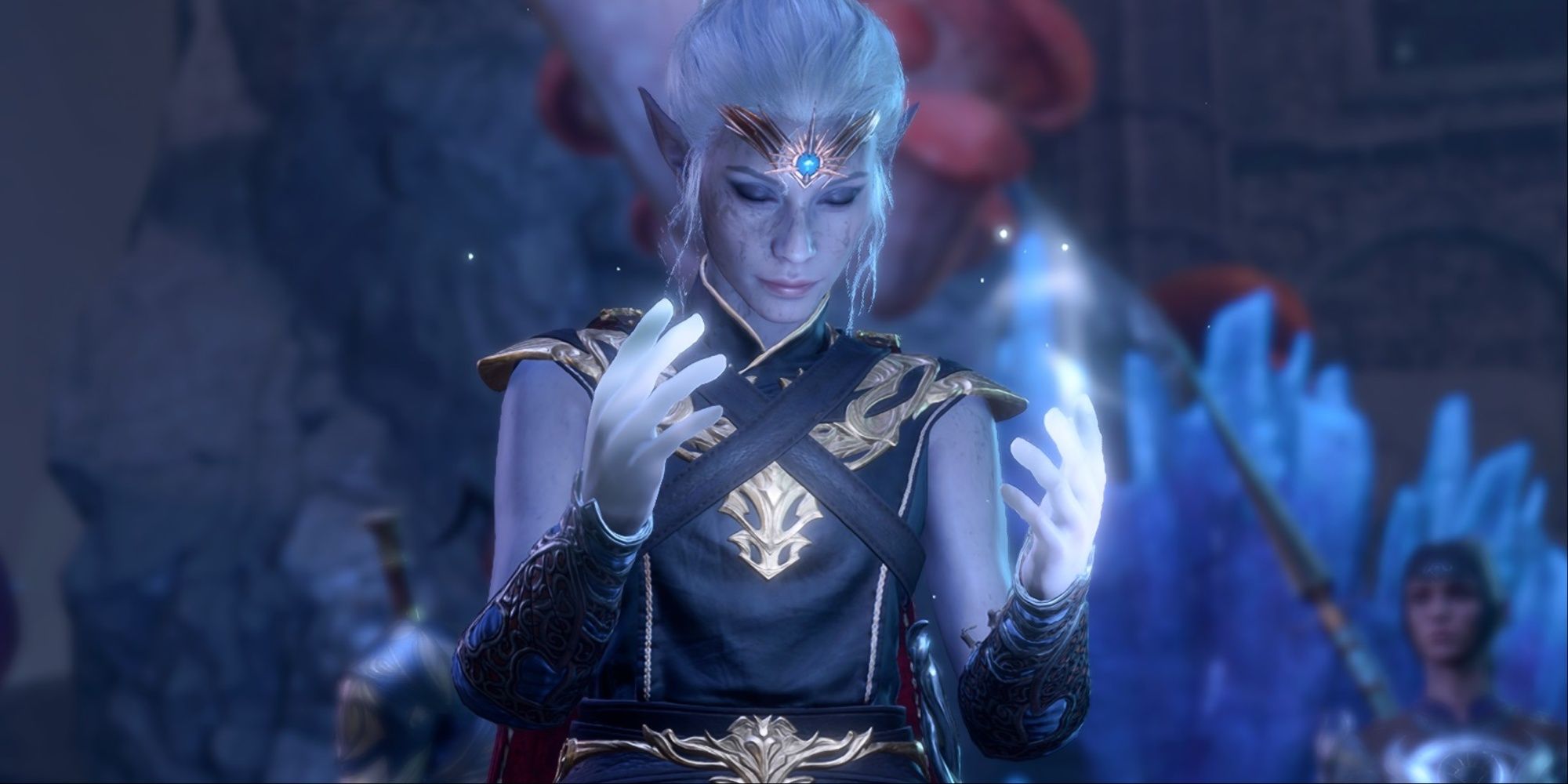
Related
Baldur’s Gate 3: Best Storm Sorcerer Build
This guide details everything you’ll need to build a powerful Storm sorcerer in BG3.

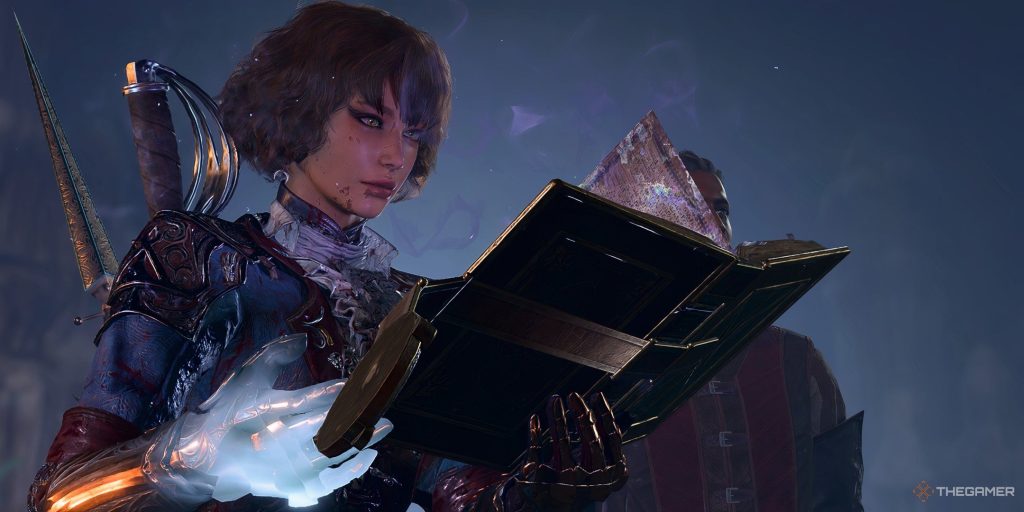
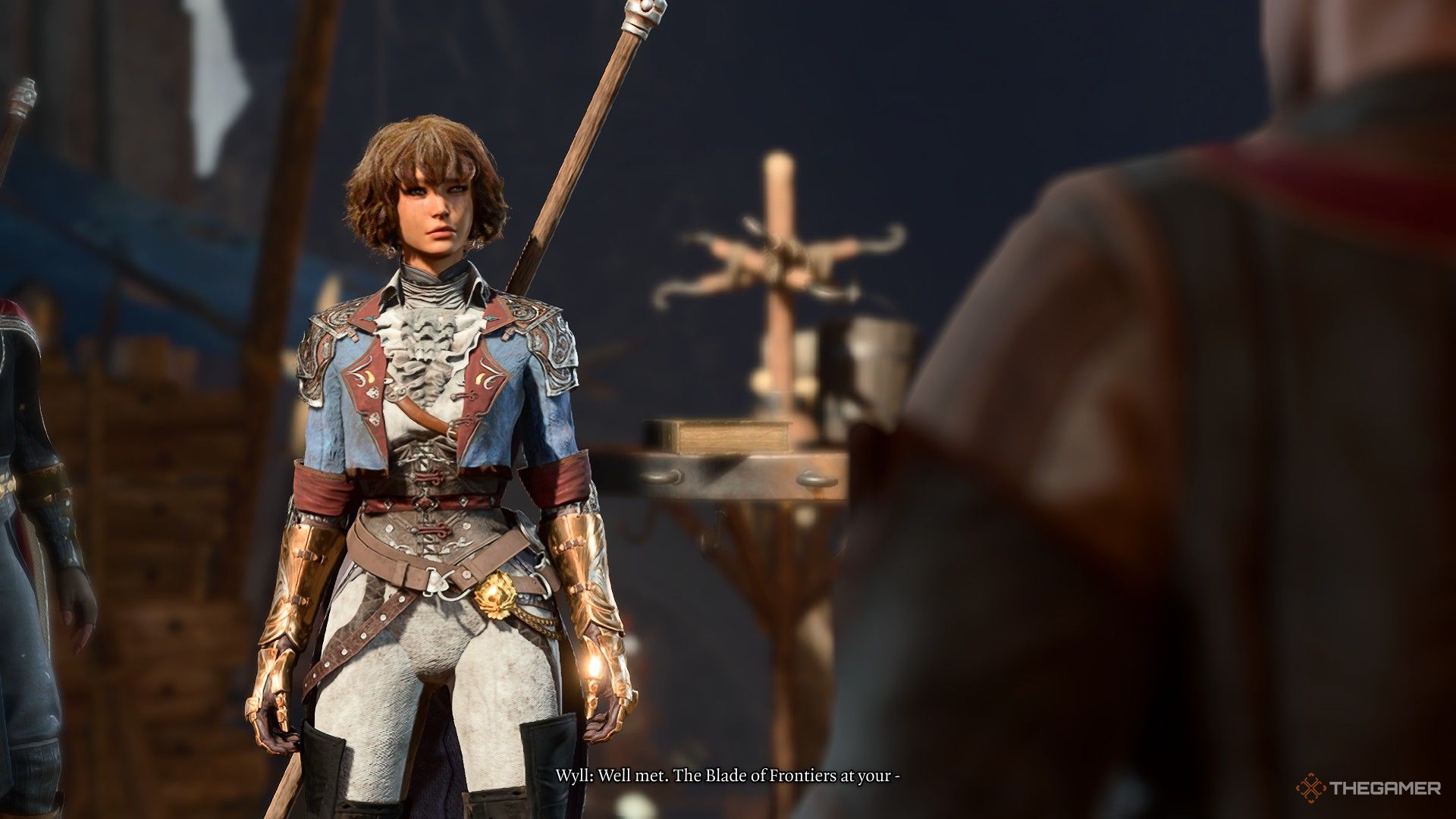
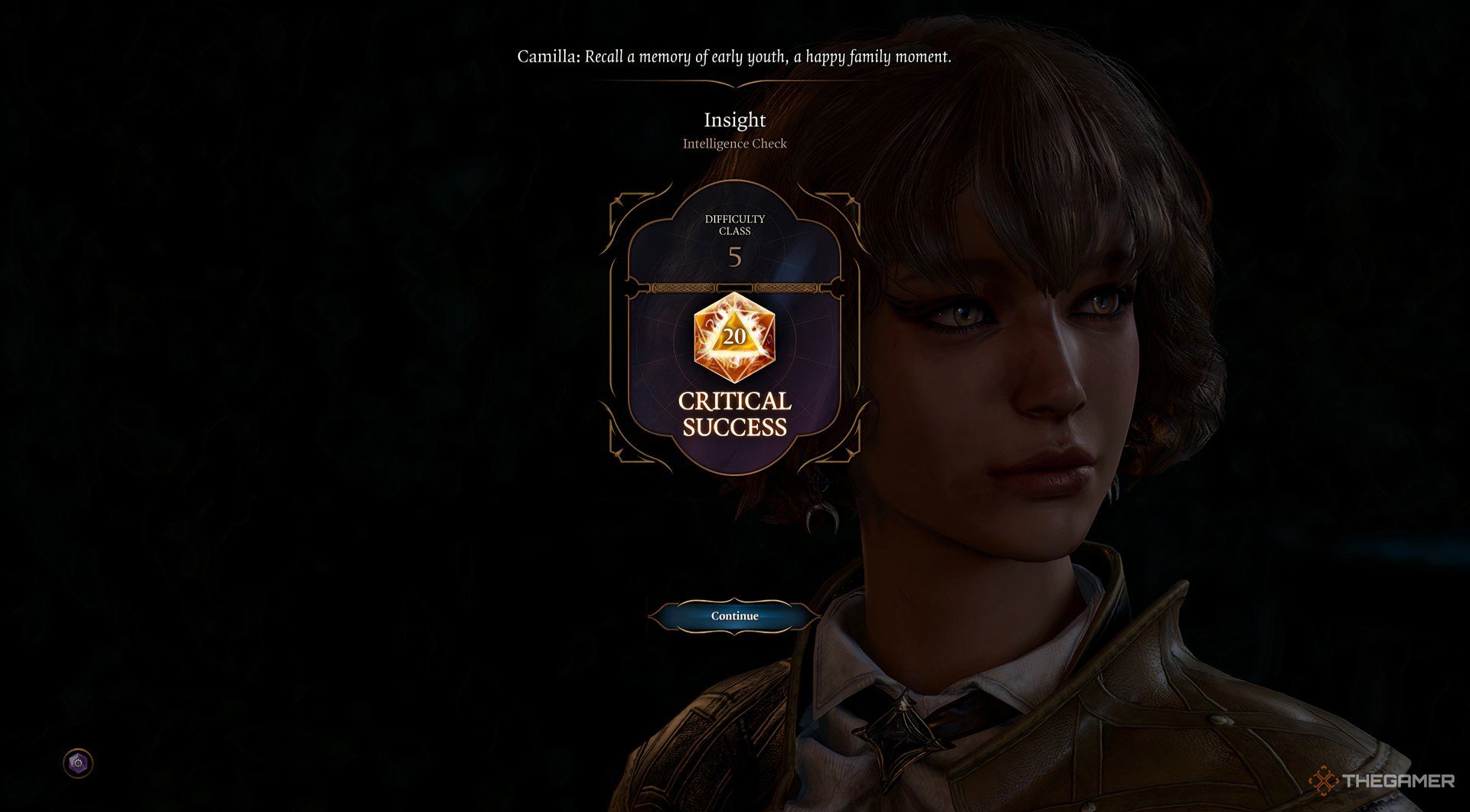
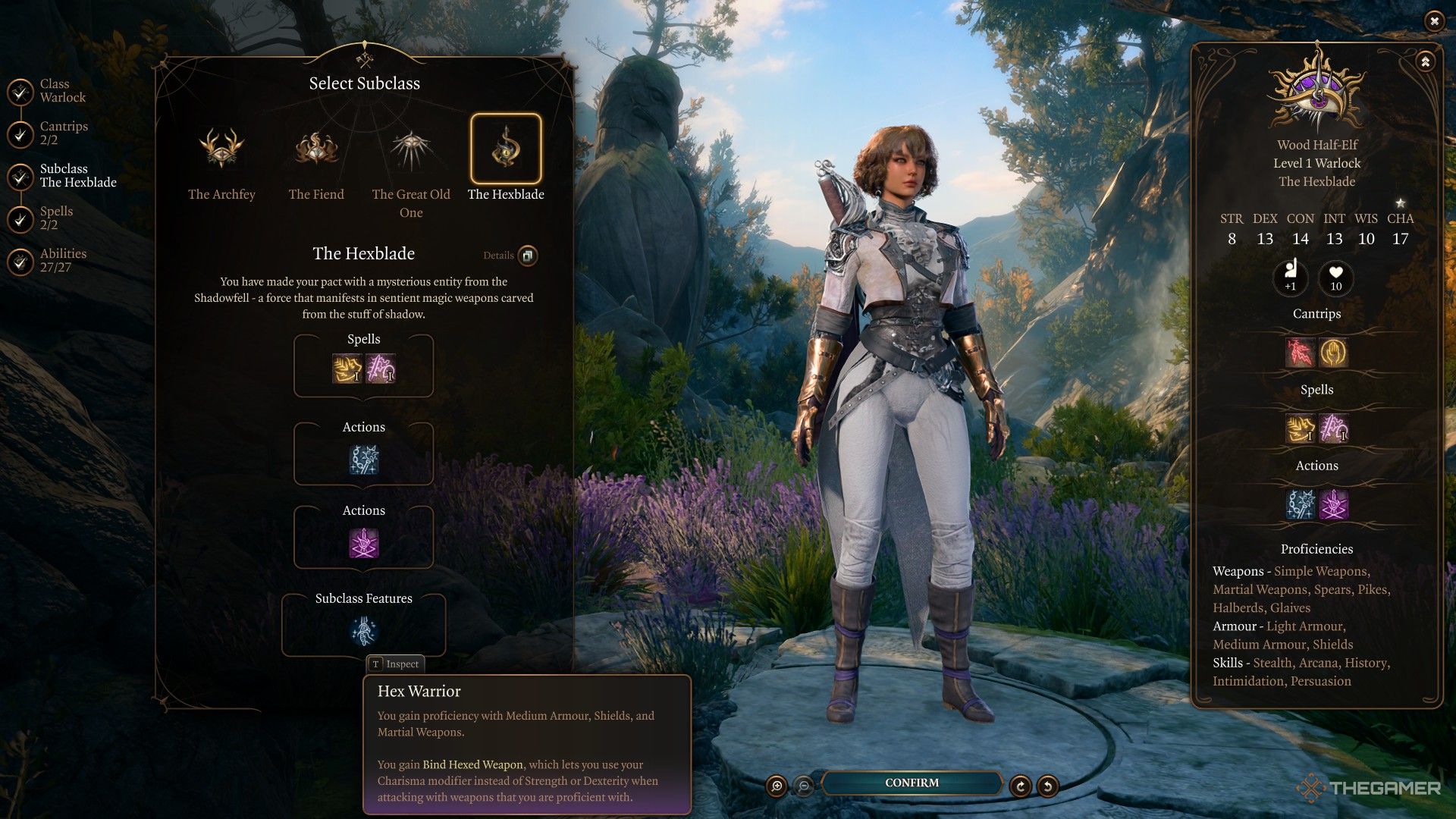
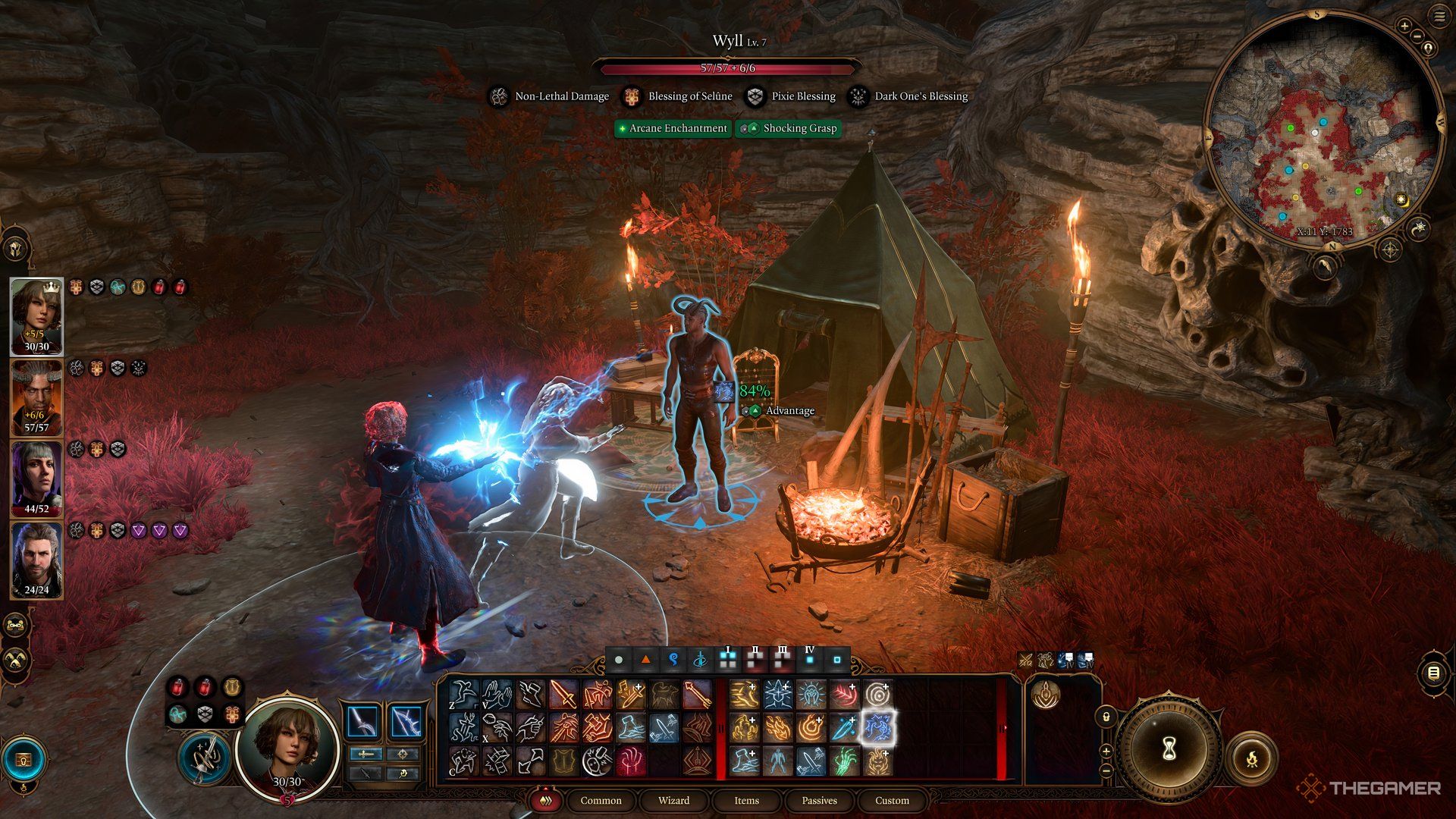
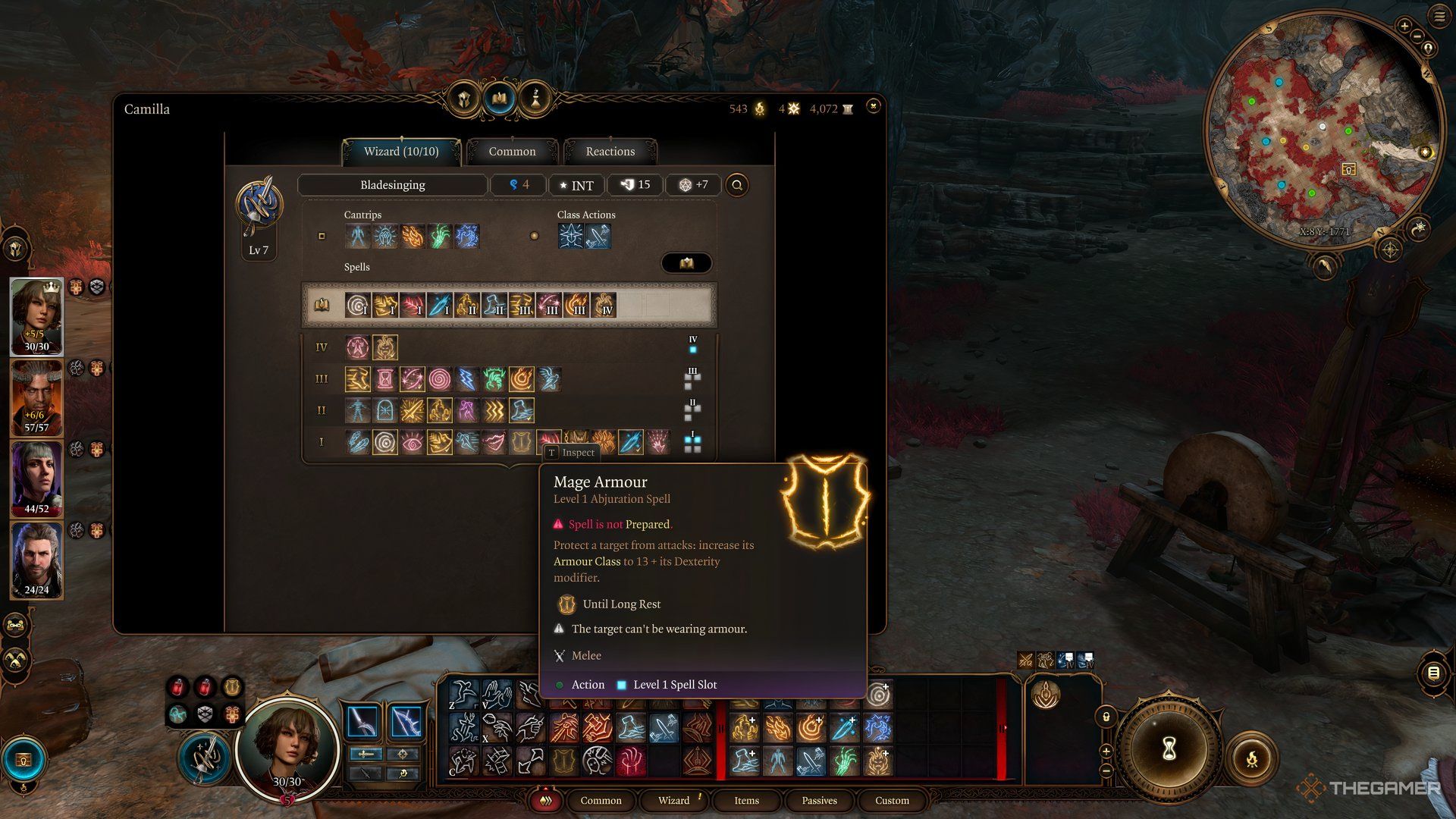
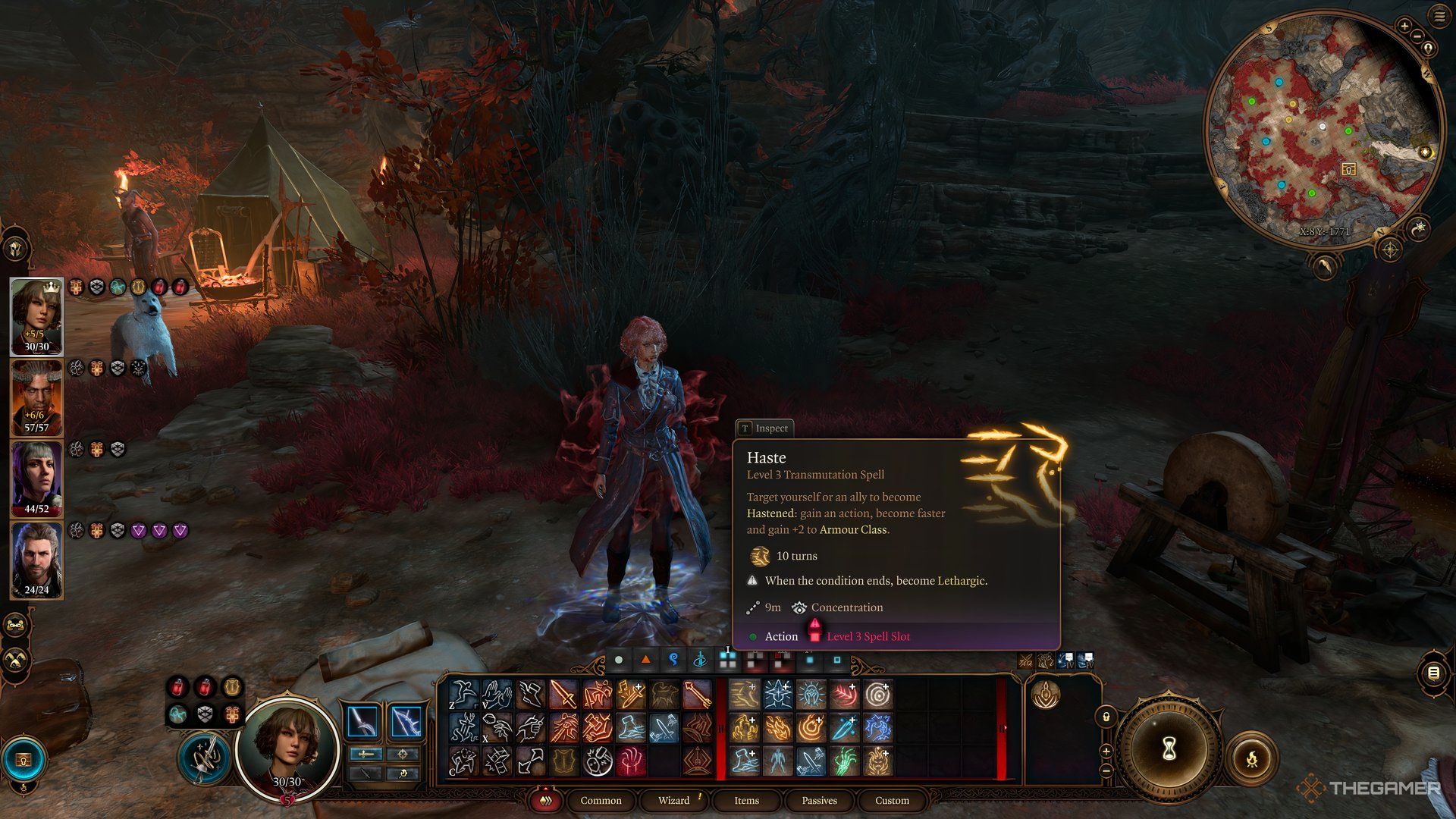
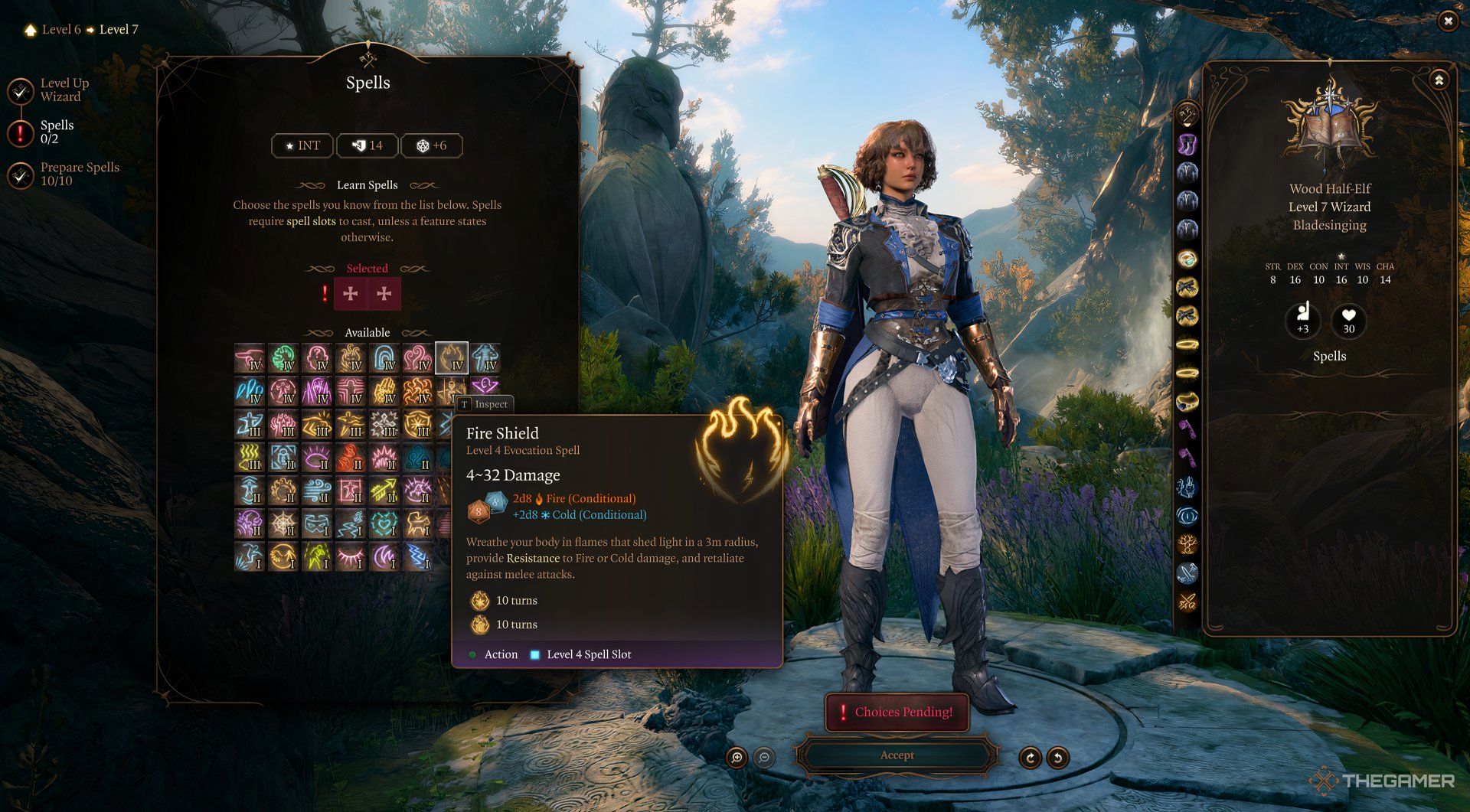
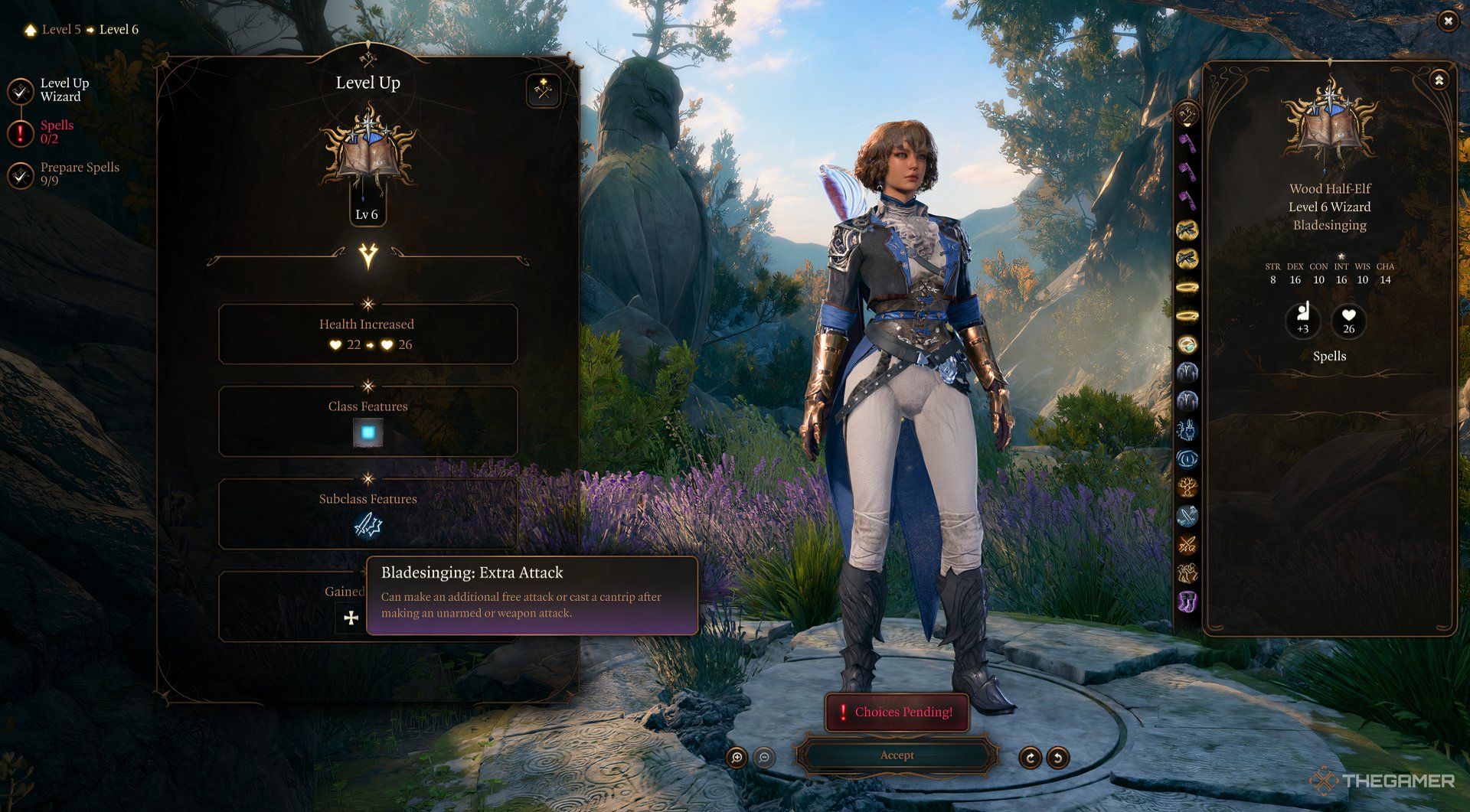
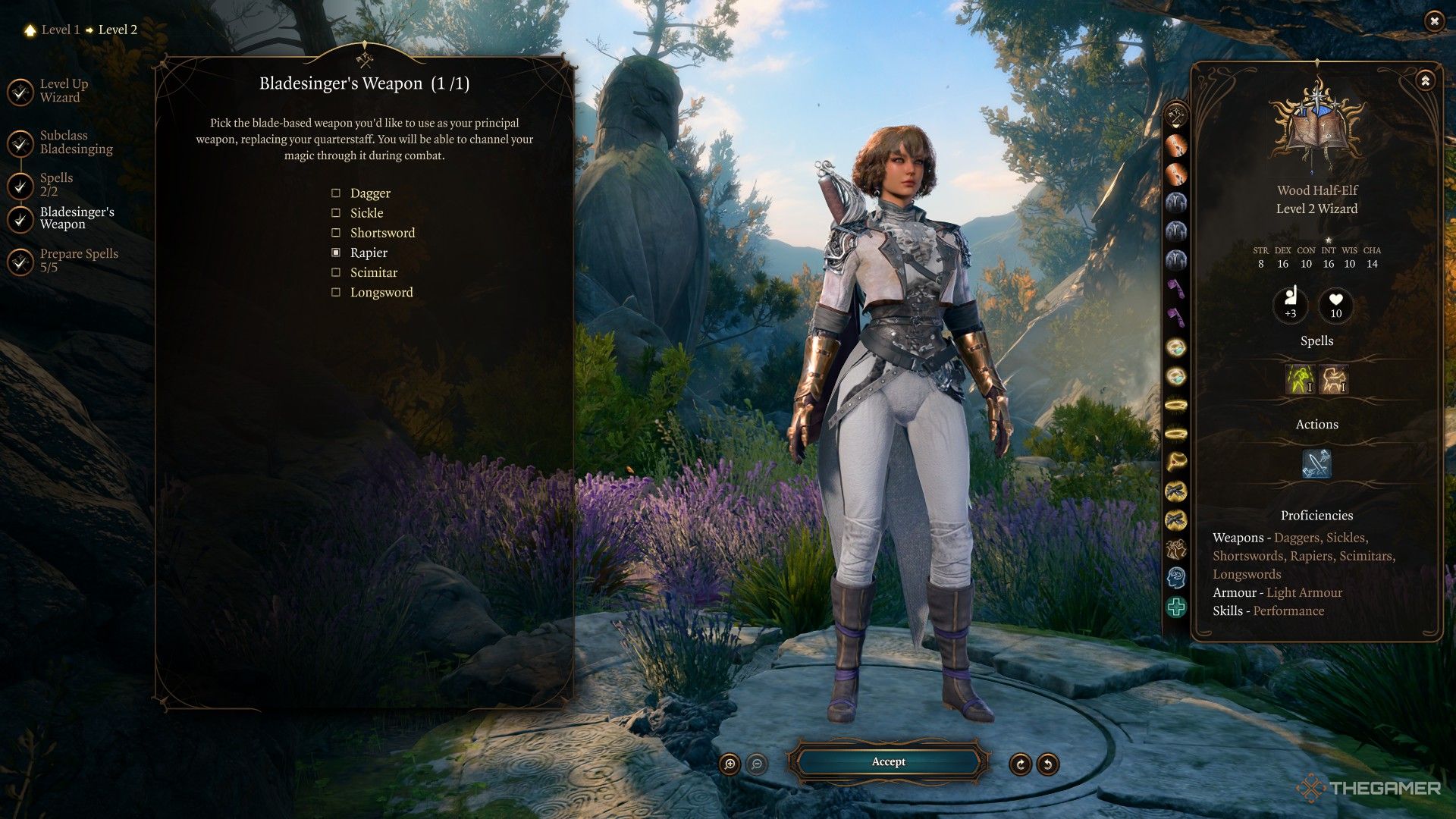
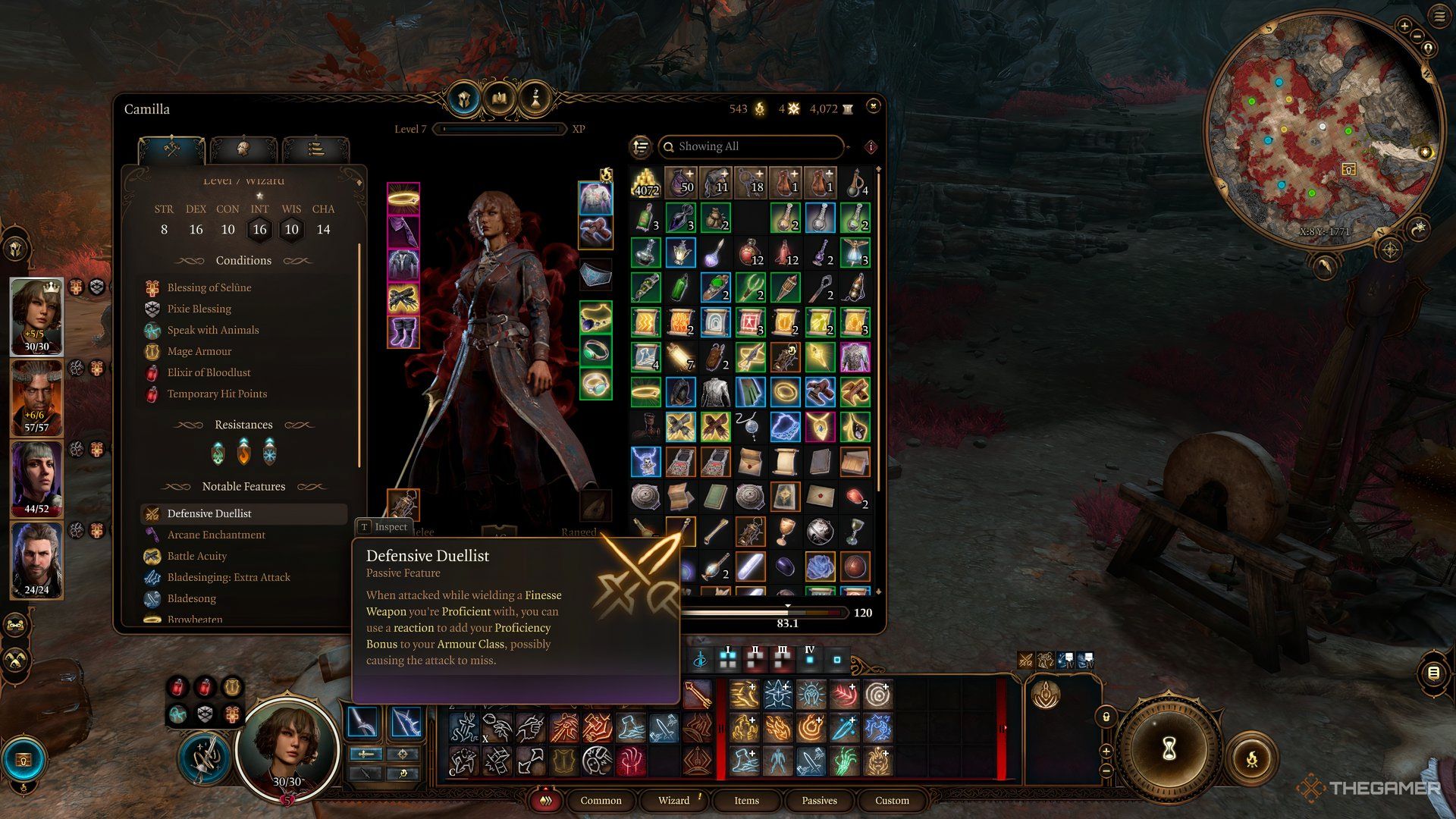
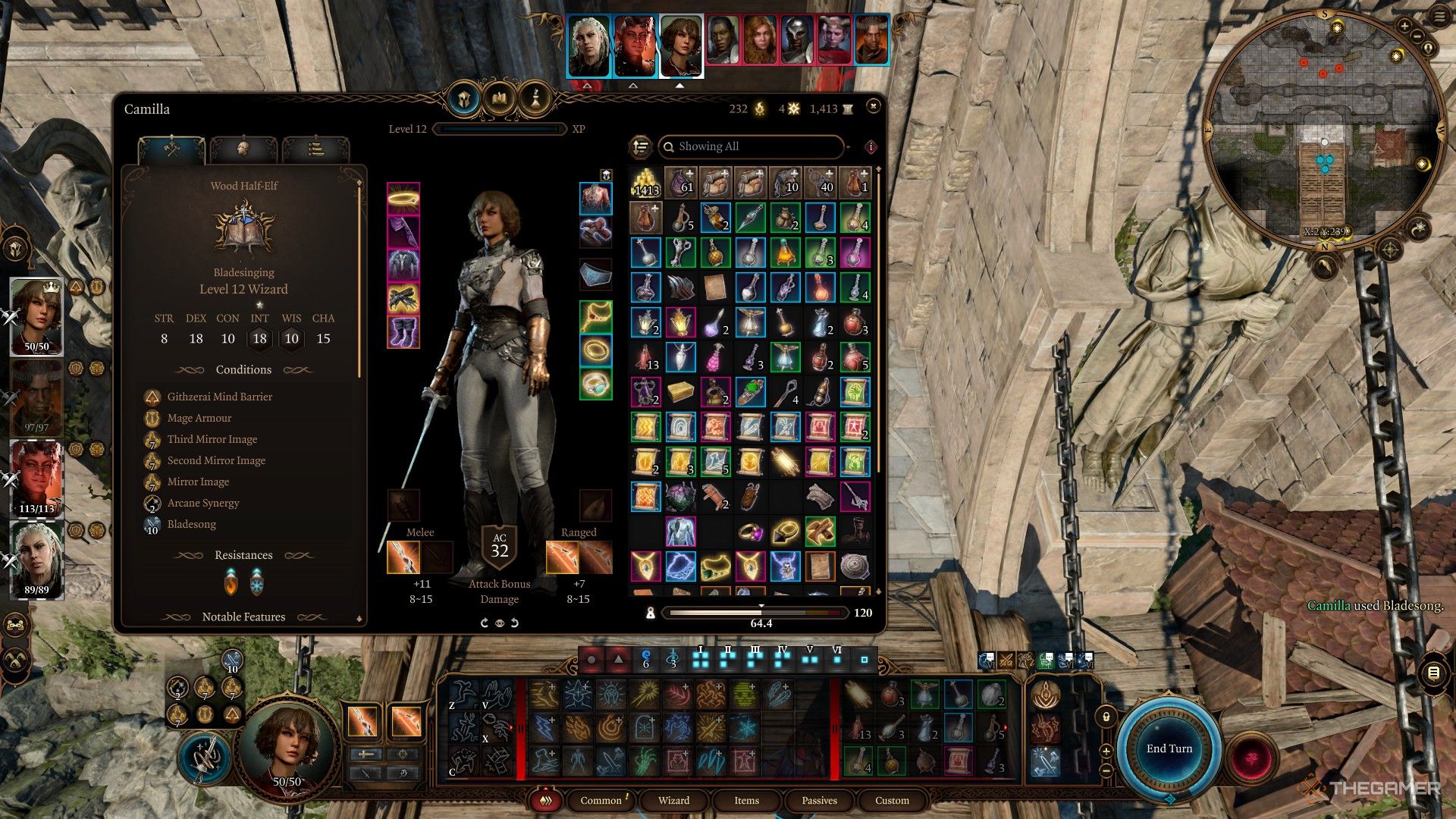
 Daredevil Gloves
Daredevil Gloves Ring of Arcane Synergy
Ring of Arcane Synergy Strange Conduit Ring
Strange Conduit Ring Necklace of Elemental Augmentation
Necklace of Elemental Augmentation